Dominaria has brought us a lot of changes and innovations. One of them – is Sagas. From this article you will find out when lore counters should be added. What kind of effects could affect a number of lore counters? When Saga’s triggers are triggered and when they are not. What can be done to keep Saga on the battlefield with a last lore counter and what is the difference between Saga’s SBA from everything else's.
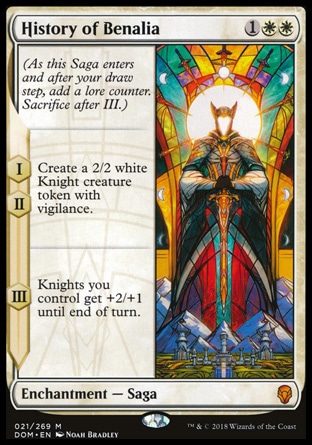
Oracle Text:
Enchantment — Saga
(As this Saga enters and after your draw step, add a lore counter. Sacrifice after III.)
I, II — Create a 2/2 white Knight creature token with vigilance.
III — Knights you control get +2/+1 until end of turn.
Saga is a new card type. It is an enchantment subtype, which has additional rules about it. For example, just like an Aura. All effect that are relevant to enchantments are also applicable to Sagas:
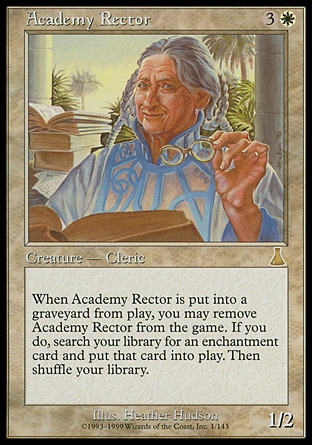
You can find a Saga in your library on Academy Rector’s trigger resolution.
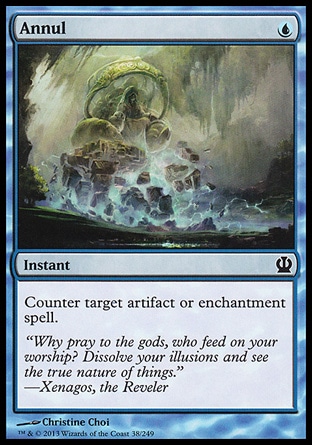
A cunning opponent can cancel your Saga with Annul.
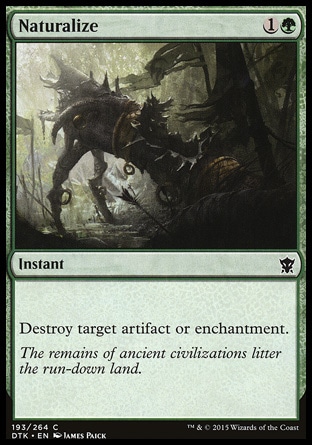
Sagas does not have any supertypes by default, thus they are not legendary. You can control more, than one Saga with the same name.
Sagas are historical permanents:
700.6. The term historic refers to an object that has the legendary supertype, the artifact card type, or the Saga subtype.
There are no rules, connected to this term, but there are some cards, which interacts with it. For instance, casting Saga will trigger Jhoira, Weatherlight Captain’s ability.
You can cast Sagas as usual enchantments in your main phase and with an empty stack. This time restrictions can be broken with the effects, which allow you to play that card in a different time: Raff Capashen, Ship Mage.
On Saga’s resolution or as a result of some effects (like Show and Tell) Saga enters the battlefield and gets one lore counter right away.
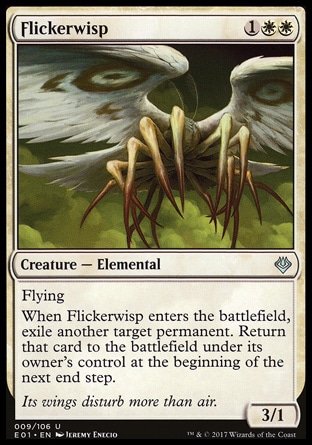
If you have decided to exile Saga with a Flickerwisp’s trigger, it will return on the battlefield at the end of the turn with one lore counter, regardless how many lore counters it used to have.
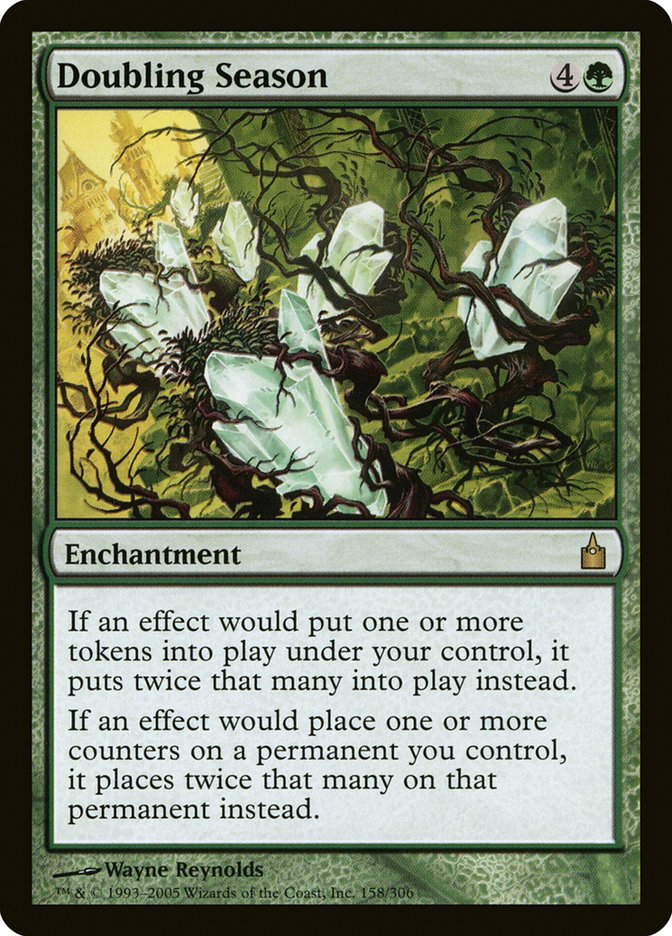
If you control a Doubling Season, your Sagas will enter the battlefield with two lore counters. This only refers to counters, which are put when Saga enters the battlefield. See details below.
When it's your first mane phase each Saga under your control gets lore counter. This is an action, based on turn structure, just like drawing a curd in a previous phase. It is written in the rules and a player cannot decide whether they want to do it or not — it is mandatory. This action does not use stack, thus it is impossible to respond to it. Doubling Season does not react to this event, because a reason of lore counter’s appearance is not an effect.
Pay attention to a reminder about the rules on Saga cards, where «after your draw step». is written. It means that after your draw step is ended and when your main phase has begun. It is formulated in the rules exactly the same:
714.3b. As a player’s precombat main phase begins, that player puts a lore counter on each Saga they control. This turn-based action doesn’t use the stack.
Usually, it means, that in a normal game lore counter is put after drawing a card, but you should not forget, that players get a priority during draw step and can do something. For example, a cunning opponent can destroy or exile your Saga.
If first main phase somehow is skipped because of an effect (Fatespinner), your Sagas would not get lore counters and their chapter effect would not work. However, if a draw step has been skipped, it will not affect Saga: lore counters will be put in the beginning of the first main phase.
If the turn-based action of putting a lore counter on a Saga is missed, it should be handled as though it was a missed trigger.
Saga’s Chapter abilities
Each Saga has abilities, which are marked by Roman numerals (they are labelled in the rules as {rN}). Those abilities are called Chapter abilities. They are always triggered abilities, which are triggered when a lore counter is added and a total number of lore counters hits another chapter.
In rules it looks like that:
714.2b “{rN}—[Effect]” means “When one or more lore counters are put onto this Saga, if the number of lore counters on it was less than N and became at least N, [effect].”
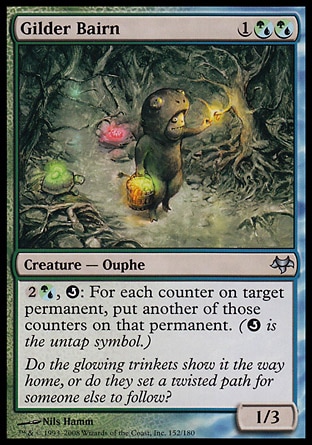
This wording considers a situation, when Saga got more than one lore counter. In this case, all abilities before a chapter N triggers.
For example, if you control Doubling Season and cast History of Benalia, it will enter the battlefield with two lore counters. Two Benalia’s abilities will trigger — it had less than 1 counter and got at least 1 counter; and had less, than 2 counters and got at least 2 counters.
If a History of Benalia had 2 counters and you activated Gilder-Barin's ability and put two more, third ability will be triggered. Only once.
If you read trigger’s text again you will notice, that there are no specifications about how lore counter should be added. Therefore, there are several ways to get a chapter’s effect. You can change a number of lore counters not only from replacement effects or turn-based actions:
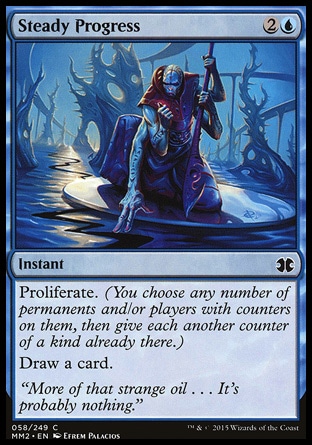
You can put an additional counter using Proliferate.
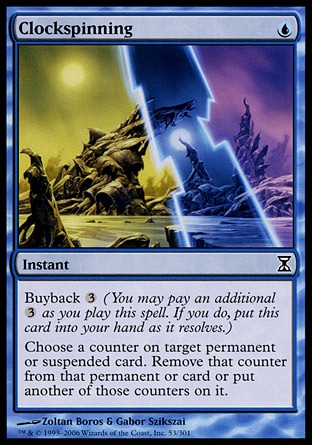
Clockspinning can add or remove counters. It depends on what effect do you need.
As you already know, trigger goes on the stack and does not depend on its source destiny. A change of a number of lore counters nor Saga’s existence does not affect trigger.
Saga’s trigger can be copied by Strionic Resonator’s ability.
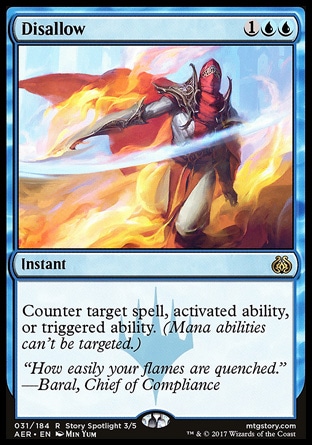
Trigger can be cancelled and, in that case, it will be removed from the stack and will not cause make any effect.
If a number of lore counters reach maximum number of chapters, Saga’s controller has to sacrifice it after final chapter’s trigger leaves the stack with SBA.
704.5s. If the number of lore counters on a Saga permanent is greater than or equal to its final chapter number and it isn’t the source of a chapter ability that has triggered but not yet left the stack, that Saga’s controller sacrifices it. See rule 714, “Saga Cards.”
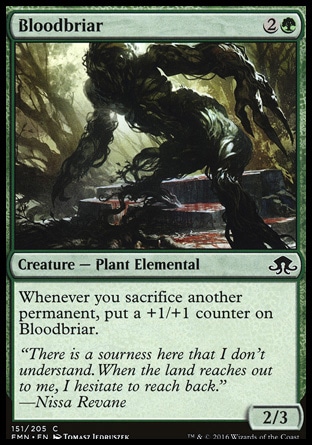
Pay attention to a fact, that state-based action , is the only thing that directs player to sacrifice permanent. Everything else either destroys or puts into a graveyard.
Only Sagas can trigger abilities like “Wherever you sacrifice a permanent...”
While final trigger of the Saga is in stack, a player has an opportunity to escape sacrificing Saga, for example, return Saga to its owner hand or reduce a number of lore counters on it:
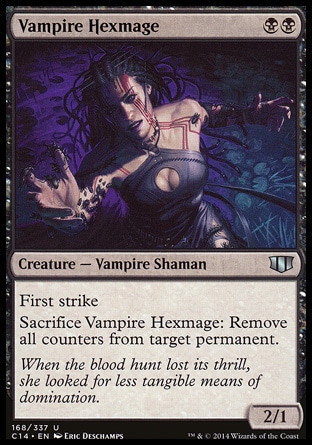
Vampire Hexmage’s activated ability removes all lore counters from Saga.
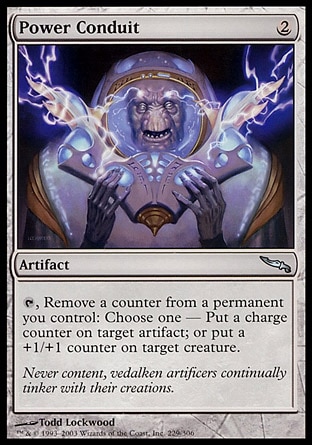
You can remove one lore counter from Saga as a Power Conduit’s activated ability cost.
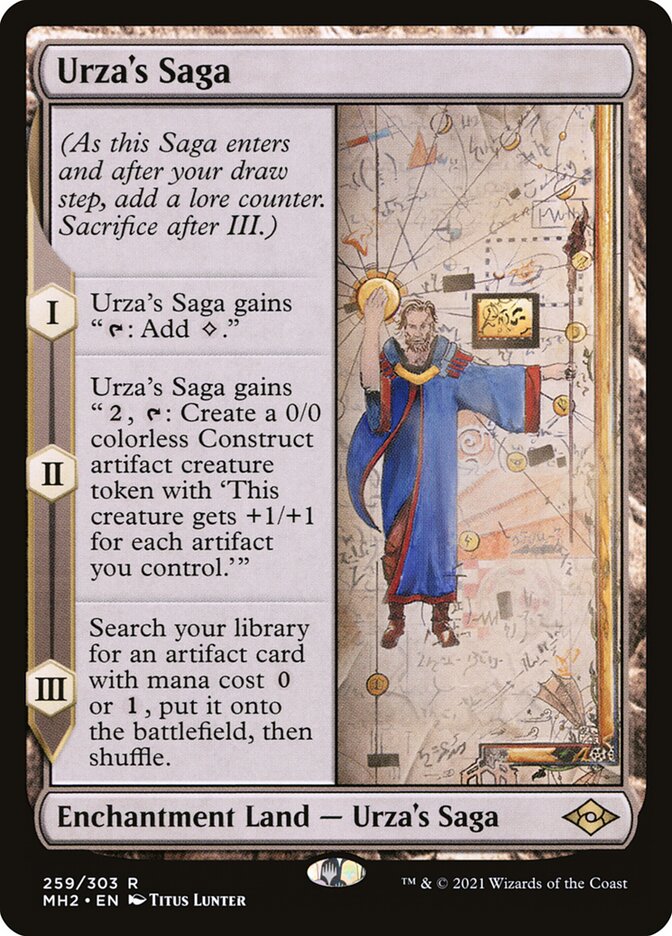
Urza's Saga, Thespian's Stage and Forest they allow you to do a trick with copying.
Reducing a number of lore counters on Saga will not cause triggering of its previous chapters. Triggers are triggered only when lore counters are put on Saga.
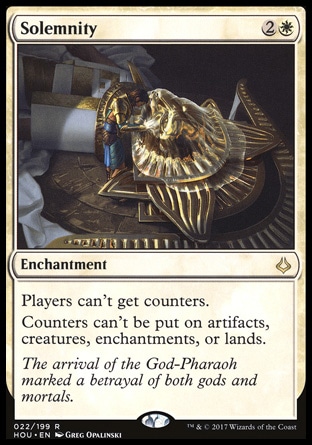
Solemnity “turns off” Sagas.
Saga’s triggers will not be triggered because counters cannot be put.
714.2d. A Saga's final chapter number is the greatest value among chapter abilities it has. If a Saga somehow has no chapter abilities, its final chapter number is 0.
History of Benalia’s abilities
First and second chapters create a 2/2 white Knight creature token with vigilance.
Those tokens noes not have Haste, thus, they are affected by “summoning sickness” — they cannot attack right away.
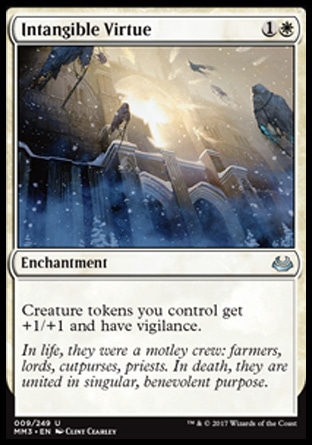
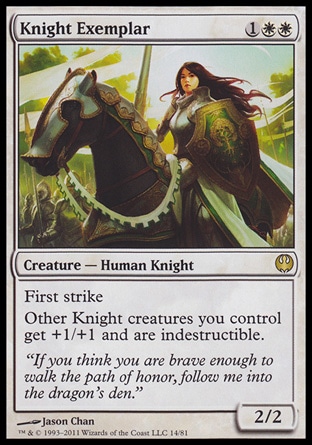
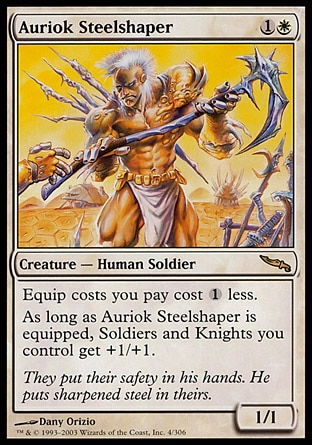
Knight creature token’s best friends.
3d chapter of History of Benalia gives Knights you control get +2/+1 until end of turn.
It affects all your creatures with a Knight subtype, which are on the battlefield on trigger’s resolution.
Even if one of that creatures loses Knight type (Turn), it would still have an effect until end of turn.
Effect will not affect creatures, which got a Knight subtype after trigger’s resolution.
Effect will not affect Knights, which are entered the battlefield (or you gained control) after trigger’s resolution.
- ⇑ [During Competitive REL event] If a player forgets to put a lore counter on their Saga, its handles as Game Play Error — Game Rule Violation. Opponent cannot ignore this violation (it is not a missed trigger!), they have to call a judge and point it out. If an opponent honestly has not noticed this mistake, they will get a penalty for Failure to Maintain Game State. Guest of honor will get a warning (which can be upgraded with 3d same infraction). And finally, a judge will decide to leave everything as it is (it is not a missed trigger! You cannot put it on stack whenever you want to) or to back up to the moment when the mistake has been made.
Translated by Aleksandra Ladygina

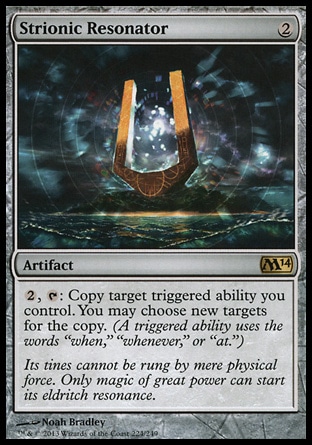
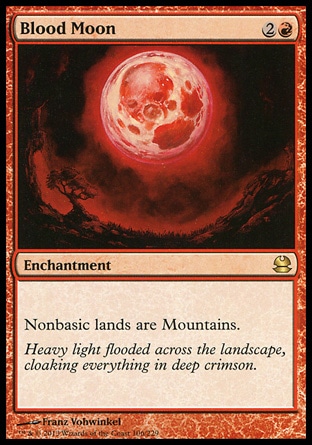
Since Urza’s Saga is a non-basic land, the ability of Blood Moon removes all its abilities, including the chapter abilities. In this case, during the next State-Based Action check, you will have to sacrifice Urza’s Saga.